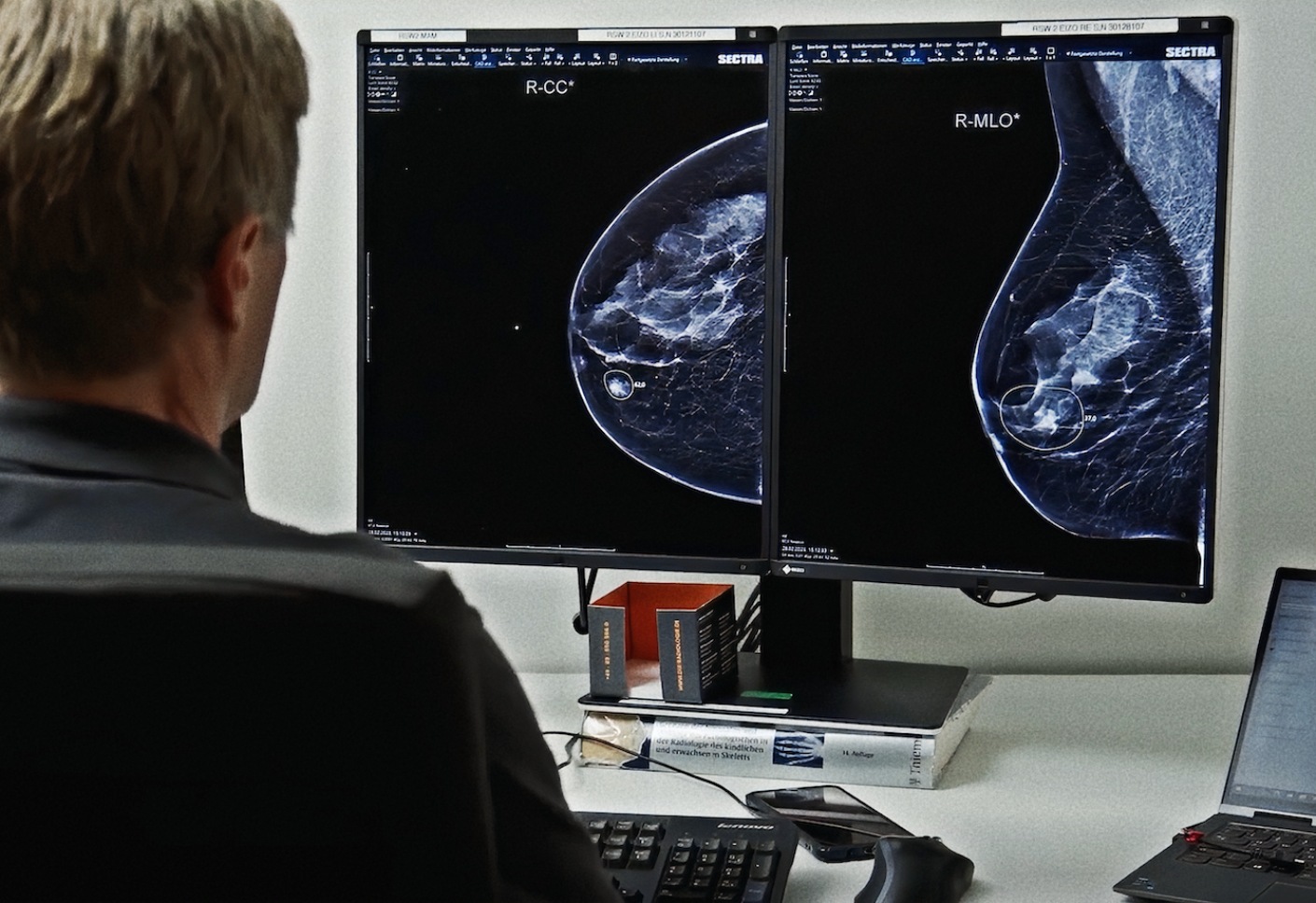A globally trusted AI software that delivers smarter, earlier breast cancer detection.


Lunit INSIGHT MMG (2D) mammography software supports earlier breast cancer detection, especially in dense breasts and interval cancers.
Designed for streamlined PACS and viewer integration, it delivers AI-driven insights during image review. This shortens reading time, supports single- and double-reading workflows, and helps address the shortage of breast imaging specialists in high-volume settings.
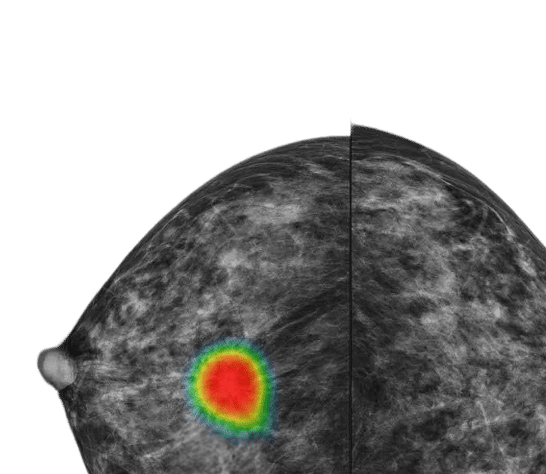
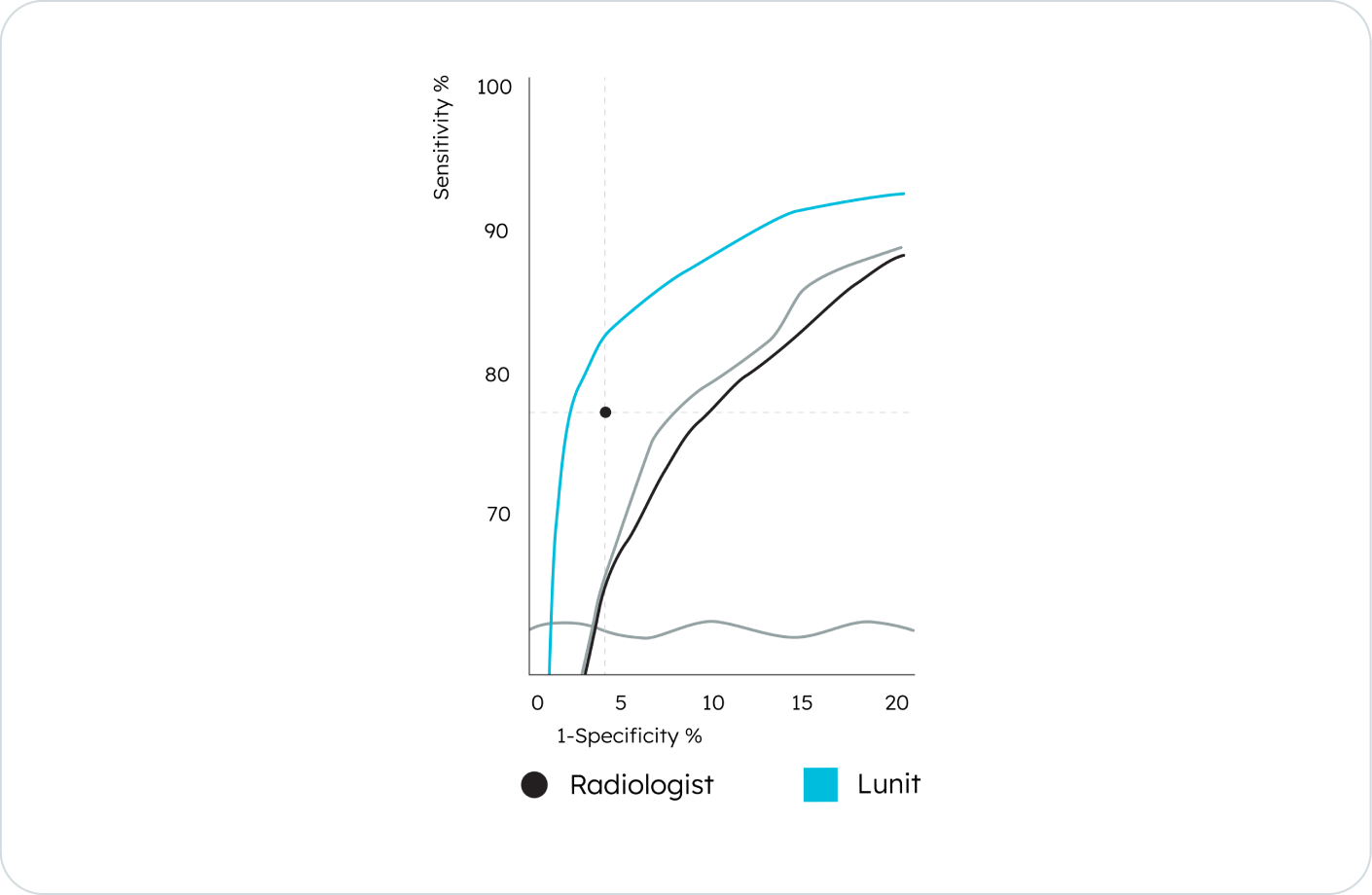
In a JAMA Oncology study, it outperformed other AI solutions with the highest accuracy and optimal sensitivity–specificity in detecting malignant lesions¹.
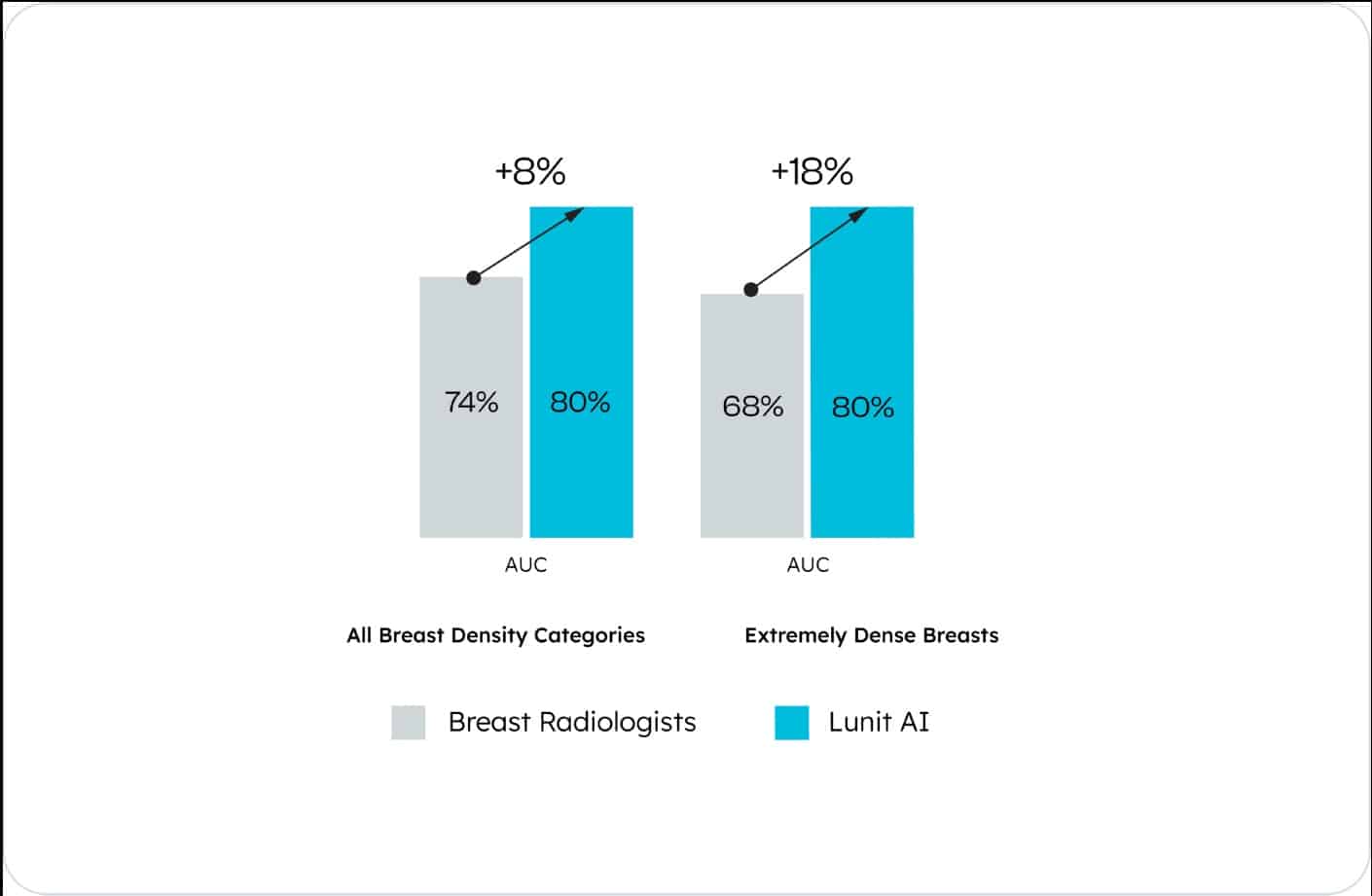
Lunit INSIGHT MMG has an 18% higher accuracy in extremely dense breasts and an 8% higher accuracy in all breast density categories, enhancing detection across tissue types*.
*Kwon, Mr., Chang, Y., Ham, SY. et al. Screening mammography performance according to breast density: a comparison between radiologists versus standalone intelligence detection. Breast Cancer Res 26, 68 (2024).
In a retrospective analysis, Lunit INSIGHT MMG correctly identified suspicious findings in a mammogram from 2020 that was originally overlooked. The patient was not diagnosed until 2022—highlighting the potential of AI mammogram reading tools to support earlier diagnosis.
Up to 40% of breast cancer cases* can be diagnosed earlier with AI support.
*Nanaa et al. Accuracy of an Artificial Intelligence System for Interval Breast Cancer Detection at Screening Mammography. Radiology 2024.
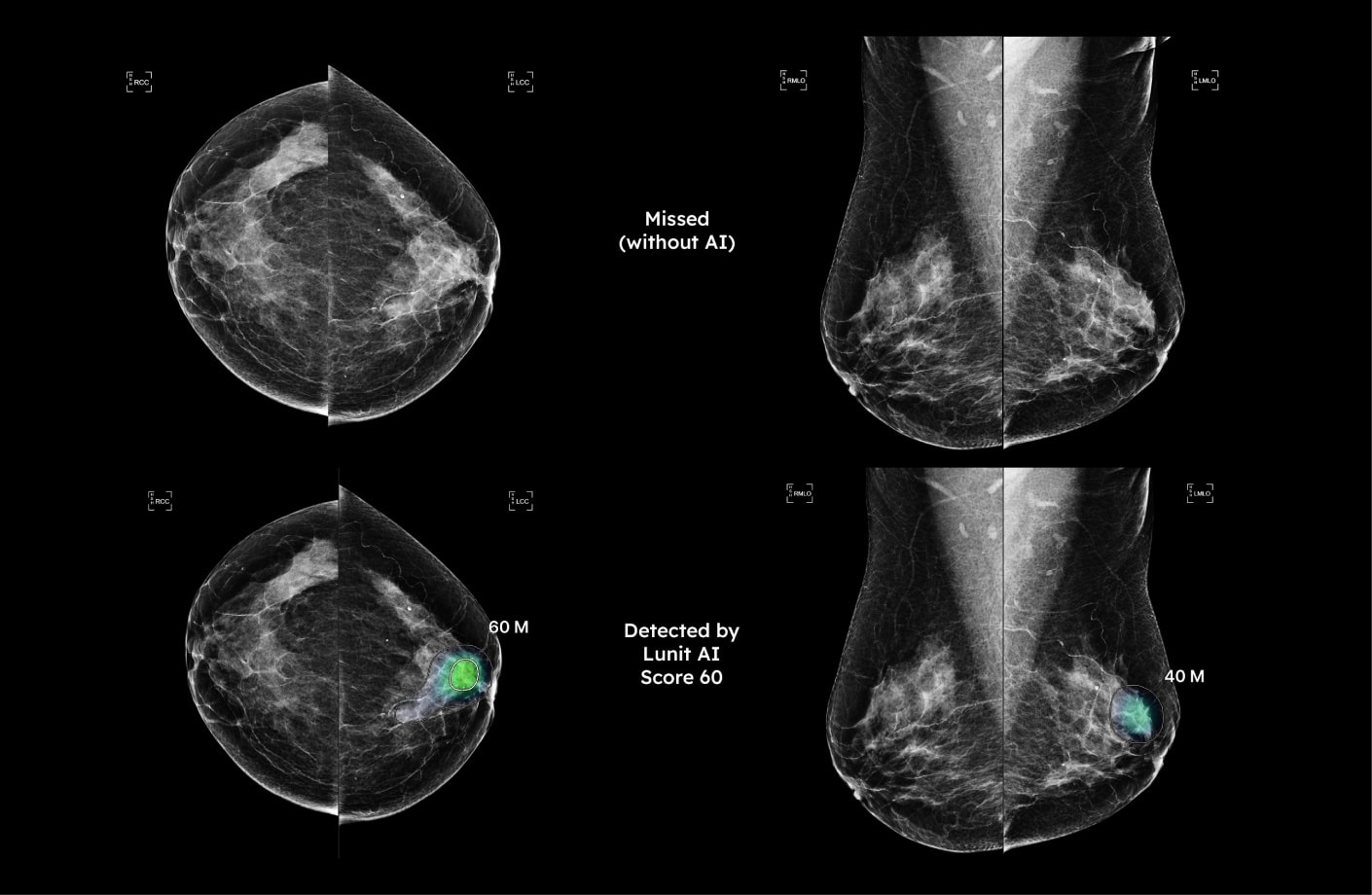
By improving specificity*, Lunit INSIGHT MMG reduces false positives and unnecessary callbacks. This supports more confident interpretation, lowers patient anxiety, and reduces follow-up burden on clinical teams.
*Kwon, Mr., Chang, Y., Ham, SY. et al. Screening mammography performance according to breast density: a comparison between radiologists versus standalone intelligence detection. Breast Cancer Res 26, 68 (2024).
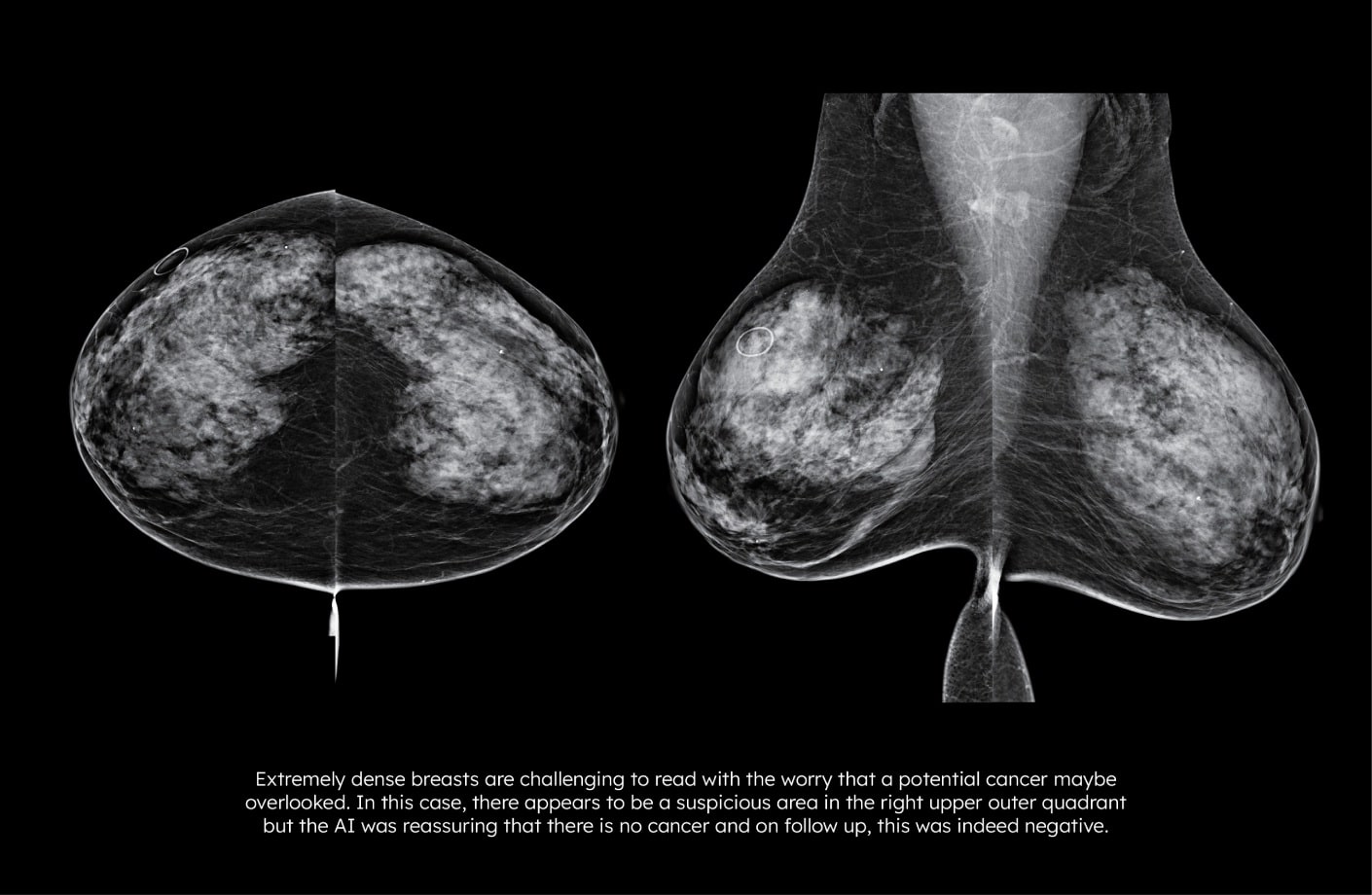
“They tell me: you’re finding the smallest cancers we didn’t see before. It’s making a real difference.”
“With AI, we’re not just reading images faster – we’re changing lives.”
“New South Wales is proud to lead the way in the introduction of cutting-edge technology to ensure the sustainability of the life-saving BreastScreen NSW program.”
Stay informed with the latest research, product updates, and global partnerships driving innovation in AI-powered cancer screening.
Explore white papers, product guides, and educational tools designed to help you get the most from Lunit’s mammography software and AI solutions.
